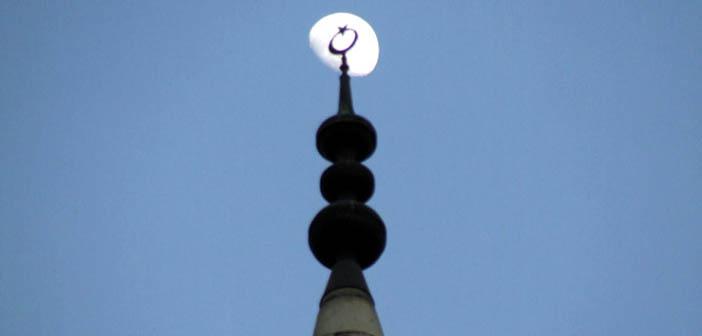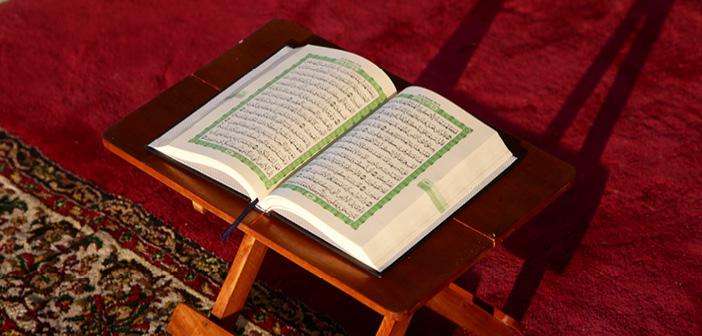What does Islam mean? What are the pillars of Islam? Who are called mukallaf? What is meant by pubescent age? Explain the provisions in relation to mukallaf.
Topics:
- What does Islam mean?
- The pillars of Islam
- Mukallaf (accountable) and judgments concerning mukallaf people
WHAT DOES ISLAM MEAN?
Islam is to accept the truths that Allah notified to our Prophet Muhammad (saw) and show our acceptance by obeying Him and His Prophet. In brief, Islam means to submit completely to Allah’s will.
THE PILLARS OF ISLAM
There are five pillars in Islam:
1) To say kalimah al-shahadah:
Kalimah al-shahadah is to say “Ash-hadu an la-ilaha illallah Wa ash-hadu anna Muhammadan abduhu wa Rasuluh”.
Meaning: “I bear witness that there is no God except Allah, and I bear witness that Muhammad (saw) is the servant and messenger of Allah.”
2) To perform prayer:
To perform prayer five times a day.
3) To fast:
To fast during the month of Ramadan every year.
4) To give zakat:
Wealthy people according to our religion give a certain amount of their property and wealth to the poor every year.
5) Hajj (the pilgrimage):
To perform the hajj by those who have the power and ability to do so once in a lifetime.
WHO IS CALLED MUKALLAF?
Sane and post-pubescent people are called mukallaf.
A mukallaf is accountable to perform the commands of the religion and refrain from its prohibitions. There are two conditions required in order to be a mukallaf;
1) To be sane
2) To have reached puberty
People who are insane or children that have not reached puberty yet are not mukallaf.
The age of puberty varies according to the physical characteristics of a child and climatic conditions. Pubescence occurs between the ages of twelve and fifteen for males and between the ages of nine and fifteen for girls. Boys and girls who reach the age of fifteen without the signs of puberty are deemed to have reached puberty. They are mukallaf and must comply with religious commands and prohibitions.
PROVISIONS CONCERNING MUKALLAF PEOPLE
There are eight provisions concerning mukallaf people. These are called Af’al al-Mukallaf.
1) Fardh:
These are obligatory commandments, such as prayer, fasting, and zakat.
Rulings of fardh: Those who perform their fardh duties receive reward in return for it. Those who do not perform them without excuse will get punishment. Whoever denies a fardh exits the religion.
Two types of Fardh:
- a) Fardh al-ayn: These are the commandments that are obligatory for every mukallaf person, such as five-time prayer.
- b) Fardh al-kifayah: These are also obligatory commandments, but if some members of the community perform, then others would be relieved from them. The janazah (funueral) prayer would be an example for this. In other words, when some Muslims perform their fardh duty of the janazah prayer, that commandment would be fulfilled for the entire community.
2) Wajib:
Wajib is an obligation that is not as certain as Fardh but that has been commanded based on strong evidence. These are things such as the Eid prayer, giving sadaqah al-fitr and sacrificing a qurban.
Rulings of wajib:
People who perform that the wajibs gain reward. Those who do not without an excuse will be punished.
3) Sunnah
These are the actions that our Prophet did with the intention of worship asides from what is fardh and wajib.
Sunnah is in two groups:
- a) Sunnah muakkadah: Voluntary act of worship that our Prophet performed most of the times are called sunnah muakkadah. Such as the sunnahs of Fajr, Zhuhr and Maghrib prayers.
- b) Sunnah ghair muakkadah: Voluntary act of worship that our Prophet performed from time to time are called sunnah ghair muakkadah.
Rulings of sunnah:
People who perform the sunnah gain reward. They attain our Prophet’s intercession (shafa’ah). Those who abandon the sunnah knowingly will be punished.
4) Mustahab:
Mustahab are the acts that our Prophet sometimes did and at other times did not do, such as Ishraaq or Duha morning prayer.
Rulings of mustahab: People who perform actions that are mustahab gain reward, but there is no punishment for those who do not.
5) Mubah
The acts that people are free to do or not are called mubah. Actions such as sitting down, walking, and sleeping.
Rulings of mubah: People who perform actions that are mubah do not gain reward. Those who do not, do not commit sin.
6) Haram
The acts that have been certainly prohibited by our religion with certainty are called haram. Actions such as killing a person unjustly, stealing, drinking alcohol, gambling, eating pork and defying parents.
Rulings of haram: A person who performs an act that is haram requires punishment. Those who avoid haram due to the fear of Allah gain reward. Those who deny haram exit the religion.
7) Makruh
Actions that are disliked but not as severe as haram, the actions that our religion does not want us to engage in are called makruh.
Makruh is divided into two:
- a) Karahah tahrimiyya: Makruh that is close to haram: Like not performing a wajib.
Ruling: People who avoid a makruh like this gain reward, yet those who perform commit sin.
- b) Karahah tanzihiyya: Makruh that is close to halal: Like not performing actions that are sunnah and mustahabb.
Ruling: People who avoid makruh like this gain reward and those who do not, do not warrant any punishment.
8) Mufsid
The things that invalidate an ongoing worship. Actions like speaking whilst performing prayer, knowingly eating or drinking whilst fasting. Speaking invalidates the prayer, and eating and drinking invalidate fasting.
Ruling: Punishment is required for invalidating worship knowingly and without a valid excuse.
Source: Presidency Of Religious Affairs The Turkey, Basics of Islam, Seyfettin Yazıcı




